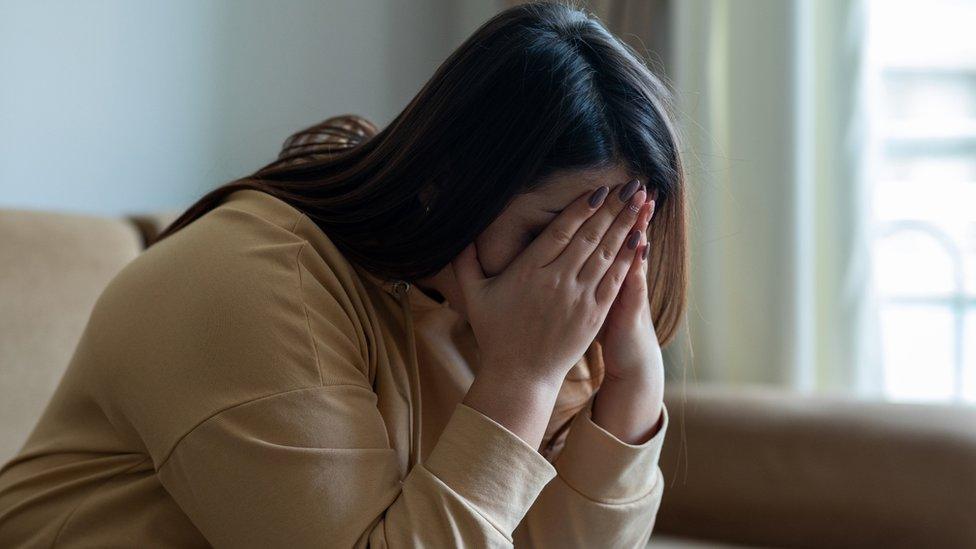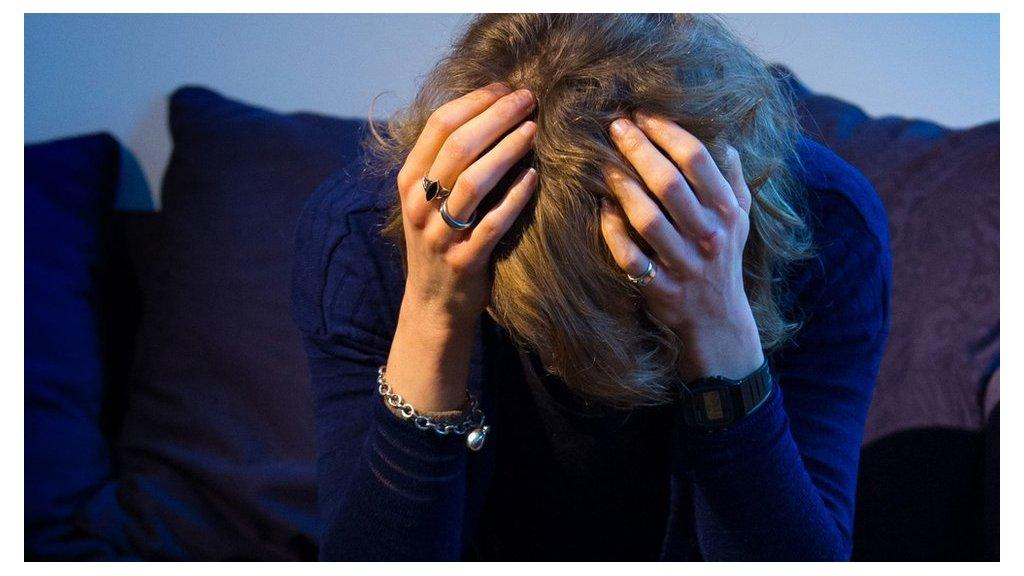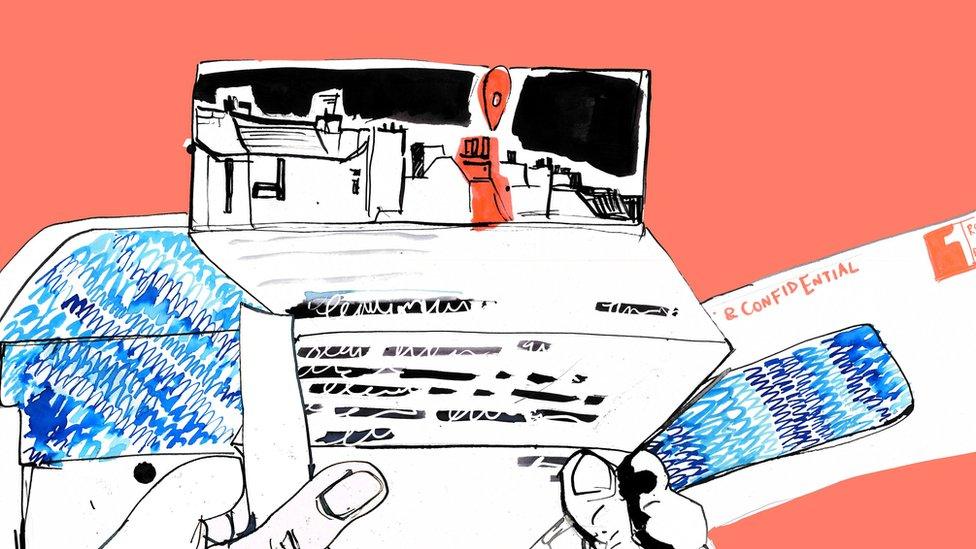Survivors recount trauma of economic abuse

The charity Surviving Economic Abuse said 750,000 UK women had recently experienced abuse through joint mortgages
- Published
Two women have described how their lives were blighted by partners who used emotional abuse to extort money, eventually costing them their homes.
Emma and Lucy - not their real names - said their partners had run up large debts during their time together and had coerced them into paying.
The women, who are both from the south of England, said when the relationships had ended, the men had cut off financial support.
On Wednesday, the charity Surviving Economic Abuse urged the government to set up a task force to strengthen protection for those affected.
Emma said she had lost everything, including her house, despite the couple initially earning good salaries.
She said: “I lived in a world of constant stress trying to rein in his spending, trying to fill every hour that I could earning money. I just thought it was part and parcel of married life.”
When she confronted her husband, Emma said he would make her feel unreasonable and had threatened to abandon the family.
She said he would reply: “Am I not earning enough money? What do you want me to do then, go and get a second job? Well, I won’t ever see the kids but if that’s what you want.”
Emma said her experience was a cautionary tale, adding “We hear the extreme end of people having their bank accounts taken over, being forced to pay their salary into someone else’s account.
"For me, economic abuse was a slow burn. So subtle I didn’t see it myself. I ended up financially ruined and I’m still trying to build myself back”.

Sam Smethers from the charity said only a law change could protect mortgage holders from partners' abuse
Lucy, who had a child with her former partner, said he had run up thousands of pounds of debt on a joint credit card "to the point it couldn’t be used".
She said if she refused to pay it off, he would ignore his family for weeks at a time.
She recalled: "You kind of stop having any form of communication. It’s a horrible atmosphere to have in the house because they tend not to just take it out on you, they take it out on the children as well so in the end you just give in."
Lucy left her ex-partner, who subsequently refused to contribute to the joint mortgage and began to withhold child maintenance payments.
He also blocked her attempts to sell the property, even though she could not afford repayments.
She said: "If you can’t extrapolate yourself from that mortgage and that person, then they have the ability to destroy your credit rating.
"I’m burdened with that now and it will take me years to get back to a position where I can get a mortgage."
On Wednesday, a report, external by Surviving Economic Abuse estimated 750,000 UK women with joint mortgages in the past two years were being financially abused.
The charity's interim chief executive Sam Smethers called for laws to stop abusers "weaponising" mortgage debt.
She said: “Survivors are doing everything they can to make ends meet – cutting back on food, turning off the heating and borrowing money to keep up with repayments.
"While banks can do more to support survivors within current rules, only an urgent law change can stop abusers from destroying lives."
Get in touch
Do you have a story BBC Hampshire & Isle of Wight should cover?
You can follow BBC Hampshire & Isle of Wight on Facebook, external, X (Twitter), external, or Instagram, external.
- Published24 March 2023

- Published25 November 2022

- Published26 August 2019
